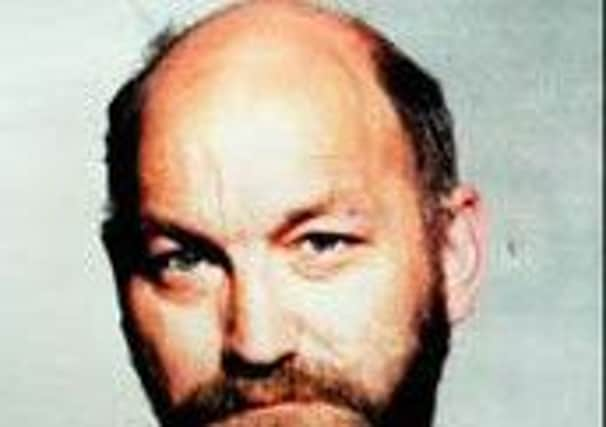Row over death of serial child killer Robert Black


It is expected that Black’s body will eventually be cremated, but no arrangements have so far been made.
Members of Black’s family have already been contacted, following his death last Tuesday but no-one has expressed a wish to claim the body.
Advertisement
Advertisement
In cases where the body remains unclaimed, the state takes responsibility of the body and will therefore pay the £595 cost of a cremation.


Black who had been found in his cell last Tuesday, at around 4pm, had been ill and was attending hospital for some considerable time.
He had been in his cell when at 3.45pm he collapsed. He was pronounced dead at 4pm. A post mortem later revealed that Black had died from natural causes, and his death was not treated as suspicious.
It is widely believed that he had died of a suspected heart attack.
Advertisement
Advertisement
Police were contacted by the Prison Service, whose responsibility it was to inform the victims family, the Cardy’s.


Local councillors expressed concern that his body would be buried just a few miles from Jennifer Cardy’s grave. Local MLA Paul Givan said that he did not want him buried “anywhere in Lisburn.”
“The Cardy family are residents of Lisburn and the terrible murder took place in the area,” he said. “The case also had an impact on the broader community.
“This is a serial child killer and given the sensitivities it would be wholly inappropriate for him to be buried here.”
Advertisement
Advertisement
It was feared should the body be buried, it would come under attack.
After Black’s death, his body was taken to the Royal Victoria Hospital where it is expected to remain until a cremation. It is thought the ashes will then be disposed of on unmarked grounds.
Black had been convicted of the murder of nine year old Ballinderry girl Jennifer Cardy in 2011.
On August 12, 1981, Jennifer cycled from her house, to meet a friend when she disappeared. Her bicycle was recovered close to her home. Her body was found at McKee’s Dam near Hillsborough, six days later.
Advertisement
Advertisement
Black, who at the time was working in the area for a poster-delivery company, was convicted of her kidnap, sexual assault and murder at Armagh Crown Court on October 27, 2011.
On December 8 2011, he was sentenced to 25 years for her murder and told by the judge he would be at least 89 before he was considered for release.
He was jailed in 1994 for the murders of Susan Maxwell (11) from Cornhill-on-Tweed, Northumberland, in 1982; Caroline Hogg (5) from Edinburgh, in 1983 and Sarah Harper (10) from Morley, near Leeds, in 1986. He was also convicted of a failed abduction bid on Teresa Thornhill in Nottingham in 1988 when she was 15.
At the time of his death, Black was weeks from being charged with the 1978 murder of Genette Tate.
Advertisement
Advertisement
Investigators concluded in May, 1994 that Black may be responsible for 15 other unsolved child murders committed throughout Europe between 1969 and 1987.
Robert Black was born in 1947 and when he was just a few weeks old he was put up for adoption by his mother a single mum, Jesse Hunter Black.
He lived with foster parents in Kinlochleven, Argyll, but both died when he was 11 and he was placed in a children’s homes in Falkirk in Scotland, then Musselburgh.
A spokesman for the Prison Service said: “In the event of a death in prison in Northern Ireland, and where no next of kin is identified, NIPS will make necessary funeral arrangements.”